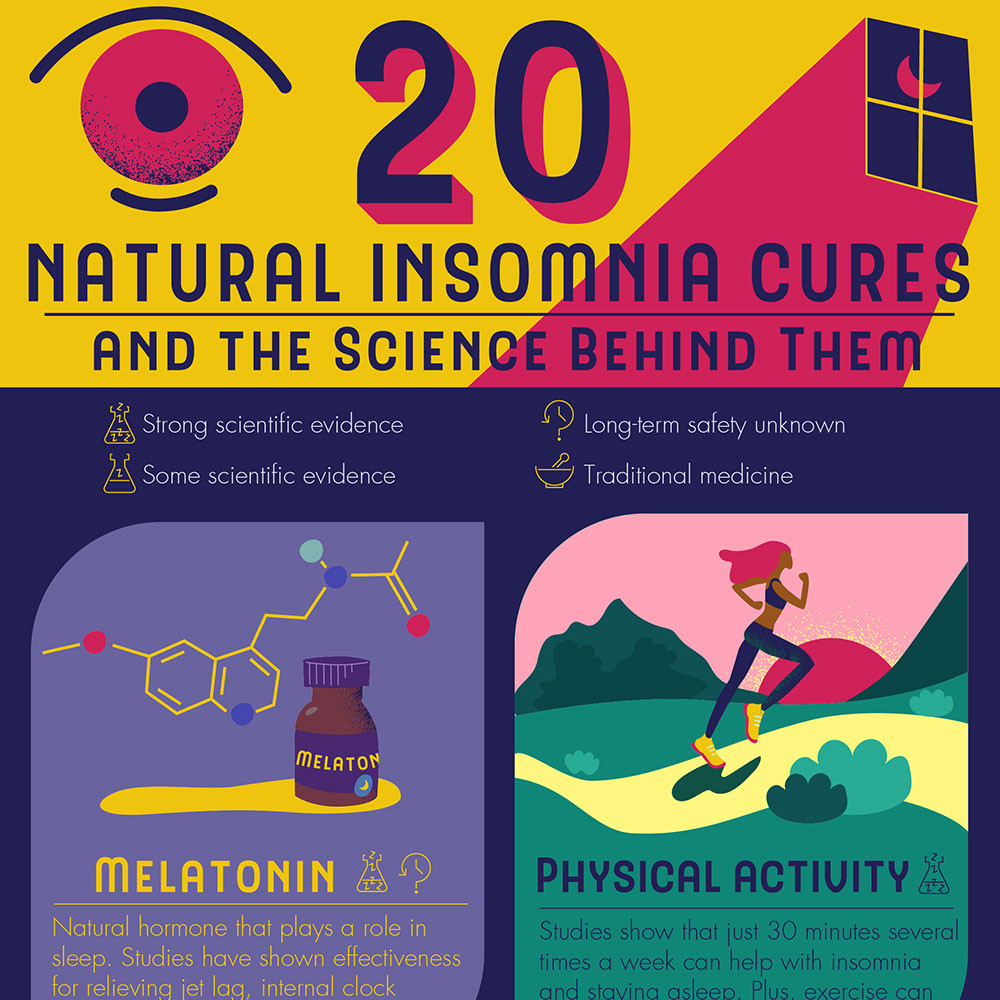

- #Insomnia best treatment how to
- #Insomnia best treatment professional
- #Insomnia best treatment tv
- #Insomnia best treatment free
You can also consider bringing ear plugs or wearing a sleep mask. You can also discuss with the nursing staff whether you can leave the door to your room shut during certain Q: How can I get a good night's sleep in a hospital?Ī: Patients may want to consider bringing items from home to make the stay more comfortable, such as a pillow, blanket or a favorite pair of socks. To work with your health care team to identify what behaviors can be modified to eliminate the root of the problem. They do not eliminate the cause of the insomnia, so it is important Sleep medications can be habit-forming and should be used with caution. Q: Do you recommend medication to treat insomnia during/after cancer treatment?Ī: If your provider recommends any medications for insomnia, they should only be taken for a short period of time.
#Insomnia best treatment how to
Q: What is cognitive behavioral therapy for insomnia?Ī: Cognitive behavioral therapy teaches an individual how to control thought processes when trying to relax, and how to get the mind and body to relax in order to enhance sleep. Many of the supplements that are advertised for insomnia could interfere with your cancer treatment. Q: Do you recommend any over-the-counter supplements to treat insomnia?Ī: It's important during cancer treatment that any sort of supplements you're considering for insomnia should be thoroughly reviewed with your care team.
#Insomnia best treatment professional
If these strategies are not working for you, please speak with your cancer team or call the Adult Survivorship Program at Dana-Farber (61) to learn more about professional treatment from insomnia.
#Insomnia best treatment free
Make sure your bedroom is free from light and noise.Remove electronic devices from the bedroom.

#Insomnia best treatment tv

Here are some strategies you can try on your own: Improve Sleep Behaviors It is important they are aware of any medical or psychiatric side effects of your treatment. Q: Is there anything I can do on my own to help my insomnia before I seek therapy?Ī: First, make sure your oncologist or care team is aware of your sleep problems. Other non-cancer medications that can affect sleep include: If possible, try to take the steroids early in the day. Q: Do certain cancer treatments or medications affect sleep more than others?Ī: Patients who receive steroids as part of their chemotherapy treatment are more likely to experience sleep problems.


 0 kommentar(er)
0 kommentar(er)
